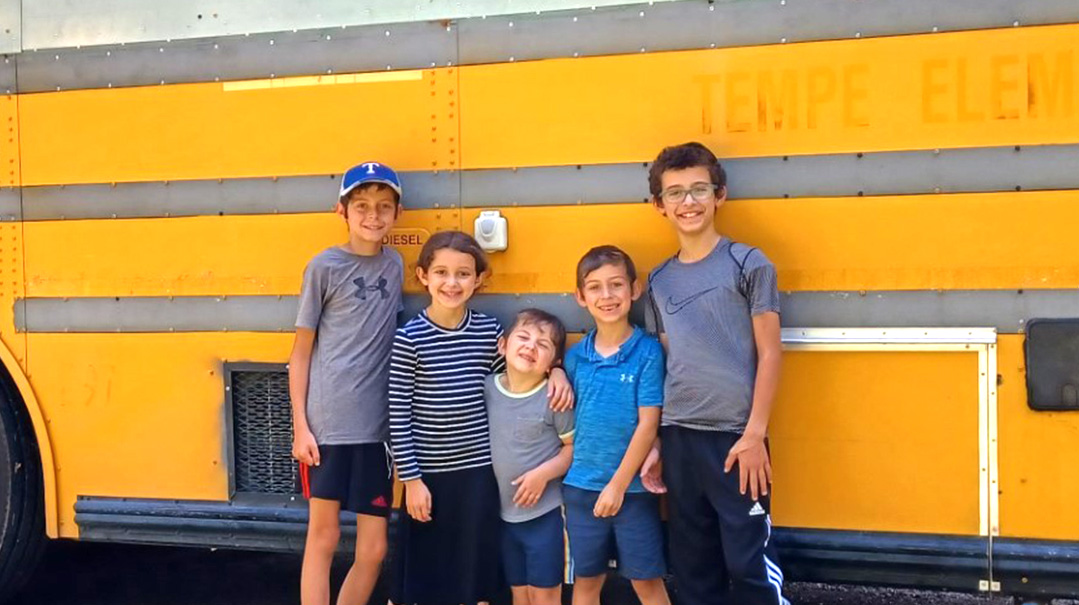Forgive and Forget

An amazing true story that shows how important it is to ask for mechilah

In the days leading up to Yom Kippur, we ask our friends to forgive us for having hurt them during the year. And we try to forgive those who have wronged us, too. This way, we hope Hashem will forgive our aveiros on Yom Kippur.
Which do you think is harder: to ask someone for forgiveness, or to forgive someone who hurt you?
Here is an amazing true story that shows how important it is to ask for mechilah, even if it’s years after the hurtful episode took place. (All identifying details have been changed.)
The Talmid Chacham’s Regret
Rav Chaim was a rosh yeshivah in Europe. One day, he suddenly developed a serious illness and had to be taken to hospital. The doctors did all sorts of tests and recommended different treatments, but nothing worked. Rav Chaim’s illness continued to worsen. He sensed he didn’t have much time left in Olam Hazeh, and began to prepare for Olam Haba. In the meantime, everyone was davening for his recovery.
One of Rav Chaim’s close friends went to visit the previous Rachmastrikva Rebbe of Yerushalayim, Harav Yisroel Mordechai Twersky ztz”l. He told the Rebbe about Rav Chaim’s serious illness. The Rebbe listened closely and then said, “Tell the choleh that he must do a complete teshuvah!”
Rav Nesanel felt very uncomfortable. How could he possibly tell Rav Chaim, who was such a tzaddik and talmid chacham, to do teshuvah? Rav Nesanel explained to the Rebbe that Rav Chaim was a tremendous talmid chacham who had certainly done teshuvah already.
Again, the Rebbe said, “Tell him that he must do a complete teshuvah!”
Rav Nesanel realized that the Rebbe wasn’t saying this lightly, and that he had no choice but to relay the Rebbe’s message to Rav Chaim.
He went to Rav Chaim’s hospital bed and told him what the Rebbe had said. After thanking Rav Nesanel, Rav Chaim thought long and hard about what the Rebbe might be referring to. Teshuvah? Ever since he realized that the doctors couldn’t help him, he had done one cheshbon hanefesh after the other. He spent all day, every day, doing teshuvah for all the big and small aveiros he could remember doing during his life. What was he forgetting?
False Alarm
Suddenly, Rav Chaim remembered something that had happened right before he was diagnosed with his terrible illness. Someone in his community had asked him to get involved in a family matter that was going to court. Rav Chaim hadn’t wanted to get involved in the mess, but in the end, he was able to help the family reach a solution. Not everyone had been happy with the outcome, though. One member of the family had been very hurt.
Was this what the Rebbe meant? There was only one way to find out. The last thing Rav Chaim wanted to do was stir up the painful episode, but he had no choice. He managed to contact the person who had been hurt and asked him for mechilah. The fact that Rav Chaim was very ill made it easier for the person to forgive him, and he granted Rav Chaim his full mechilah.
Rav Chaim was so relieved! He immediately called Rav Nesanel to tell him the news. “You can go back to the Rachmastrivka Rebbe and tell him that I sorted out the matter.”
Rav Nesanel immediately went to see the Rebbe and happily told him that Rav Chaim had carried out his instructions. To his shock, the Rebbe shook his head. “No, I wasn’t referring to that. I meant that he should ask forgiveness from his neighbor.”
Everyone in the room fell silent. It was extremely rare for the Rebbe to say something like this outright. How could the Rebbe know that something had once happened between Rav Chaim and his neighbor?! The Rebbe clearly had ruach hakodesh.
When Rav Chaim heard what the Rebbe had said, he was beyond surprised. He had excellent relationships with all his neighbors. Not one of them could possibly be holding a grudge against him. Over the next few days, Rav Chaim thought and thought. Which neighbor could he have wronged?
Out of the blue, he had a moment of clarity and remembered a story that had taken place decades earlier.
The Sad Saga of the Cohen Family
The painful story took place when Rav Chaim was a young man who already had a reputation as being a serious talmid chacham.
In his neighborhood lived the Cohen family. Mr. Cohen was an average, erliche Jew, but his kids didn’t exactly fit in to the frum neighborhood. Rav Chaim thought that the Cohen family was a bad influence, and decided to get them to move out.
Rav Chaim did everything he could to make sure that the Cohens would leave the neighborhood. One day, his dream came true — the Cohens had upped and left. Rav Chaim had done such a thorough job of ruining the Cohen’s reputation, they no longer felt comfortable in the community. They were forced to leave the neighborhood that had been their home for years.
As Rav Chaim lay on his hospital bed and recalled his actions, he realized this must be what the Rebbe had referred to. But he had completely lost track of the Cohens — how on earth would he find them?
With his very life at stake, Rav Chaim did everything he could to track down the Cohen family. He called former friends, neighbors, and acquaintances in order to gain clues as to the Cohens’ whereabouts.
During his search, Rav Chaim learned that the Cohens had had a very difficult time after their move. The family had struggled to find their place and ended up moving from one town to another. Eventually, they settled in a small Jewish community, which is where Rav Chaim finally found them.
Rav Chaim knew that a phone call would never do. This was one apology that he would have to make in person. He received permission from his doctors to travel to the Cohens’ hometown.
“You Ruined Our Lives!”
AS you can imagine, the meeting between Rav Chaim and the Cohens was very difficult. Mr. Cohen was already an elderly man whose face was lined with deep wrinkles. He had obviously suffered a lot during his life and was very bitter about it.
“You ruined our lives!” he yelled at Rav Chaim. “My business, my children’s shidduchim, our friendships — they were all harmed by your actions. Now you want me to forgive you?!”
Rav Chaim buried his face in his hands and sobbed. “Mr. Cohen,” he pleaded, “I know I don’t deserve your forgiveness. I made a mistake. I was young. But look at me now — the doctors haven’t given me long to live. I’ve already paid heavily for what I’ve done to you and your family.
“I’ve come to ask your forgiveness because the holy Rachmastrivka Rebbe sees that this is what is causing my illness. Can you please forgive me?”
Mr. Cohen was quiet for a long time. How could he possibly forgive decades of pain and suffering after just one conversation?
Eventually, he said, “I don’t know if I can ever completely forgive you. But I will grant you enough of my forgiveness for you to no longer be sick!”
Just a few days later, after Rav Chaim had returned to the hospital, his doctor burst into his room with amazing news. The latest set of tests had come back with some very positive results! For the first time since he started treatment, Rav Chaim took a turn for the better. His condition continued to improve until eventually he was completely cured!
It Takes Courage
It takes a lot of courage and strength to ask someone for mechilah, but it’s equally challenging to grant mechilah to someone. I spoke to some readers who described their experiences with forgiveness.
In fourth grade, one of my classmates bullied me. The bullying went on for most of the year, and it really bothered me., I managed to stick up for myself, but my classmate just wouldn’t stop! She had nasty comments for every little thing I did or said.
Before Yom Kippur the following year, she asked me, “Are you mochel me?” But she didn’t ask with sincerity; she didn’t even apologize for her horrible behavior. In fact, the only reason she asked me was because each year before Yom Kippur, our class would ask each other for mechilah. So she asked me for mechilah the same way she asked every other girl in the class.
I didn’t answer her at first, so she asked me again and again. Eventually, I gave her a half-hearted yes. But I’m not sure that I really do forgive her.
Ruchi, 11
One morning when I walked into my classroom, a classmate immediately started yelling at me in front of everyone! I didn’t know what was going on. She kept insisting that I had phoned her the night before and had said nasty things to her. I had no idea what she was talking about, but she said she recognized my voice and phone number.
At some point, she must have realized she had made a mistake. It hadn’t been me on the phone. At the end of the day, she came over to me and asked me for mechilah. I really didn’t want to forgive her. It was super hard! But she begged me for forgiveness, so I eventually did.
Elisheva Bronner, 11
In camp, my friend and I had a massive argument. We never really resolved the argument, and a few days later, I mentioned it while we were schmoozing with other friends. My friend was really upset that I had brought it up in front of everyone.
For a week, she was very distant and cold, so I realized I had really messed up. When I asked her for mechilah, she said she needed time to think about it. That shocked me, and also made me a little anxious. A week later, she told me that she forgives me wholeheartedly. Now, she’s one of my closest friends!
Hindy, 16
We went over to Miri’s house and asked her for mechilah. But we hadn’t realized how sensitive she was and how deeply we had hurt her. We asked her again, and she answered, “I’ll forgive you.” We weren’t sure if she really meant it, so that night at the sleepover, we asked her again. This time, she really did forgive us. Now, we’re all really good friends and we laugh about the whole thing.
Sari, 13
If you find yourself in a situation where you need to ask for or grant forgiveness, I know it’s hard, but if these people can do it, so can you!
The Halachos of Mechilah
Did your bunkmate borrow five dollars to buy something in the camp’s canteen? Maybe they’ve forgotten. You need to let them know they owe you money, so they can pay you back before Yom Kippur.
Oy, vey! You made someone feel really bad, and now you’re feeling bad about it. Yes, you need to ask them for mechilah. If you know that you’ve wronged them, you need to ask for mechilah as soon as possible. Don’t wait for the last minute on Erev Yom Kippur. The Kitzur Shulchan Aruch says you should try to ask before Rosh Hashanah.
When you approach someone to ask forgiveness, you should make it clear how deeply sorry you are. If they don’t feel that you’re sincere, will they really forgive you wholeheartedly?
The person you wronged is really mad and refuses to forgive you. What now? Take three people with you and ask again. You must ask for mechilah four times in total (once alone, and three times with three people). Each time you ask, you must ask a little differently. You can wait as little as just a few minutes between each request for mechilah.
If you embarrassed someone in public, I hate to break it to you — you need to ask for their forgiveness in public too, in front of at least ten people.
Someone tells you that they’re upset at you because of something you said or did. You know that you did nothing wrong. Maybe this person is just extra sensitive. Or maybe, this person is the one who started the argument in the first place. You must still ask them for mechilah.
What if you can’t get hold of the person you’ve wronged? You’ve tried to call, text, email, and even sent a snail-mail letter, to no avail. You must take it upon yourself to ask them for mechilah at the next opportunity, and then you will be forgiven on Yom Kippur.
Someone asks you for mechilah and you just can’t find it within yourself to forgive them. Granting someone mechilah can be really hard! But don’t forget that you want Hashem to forgive your aveiros, too. Forgiving the person who wronged you is the way to go! If it’s too difficult, tell them you need some time to think about it. But then call them back and tell them you want to be friends again.
Rabbeinu Bechaye says that you should clearly state, “I forgive you,” rather than just saying, “Yes.”
My cousin Rivky and I were in a fight with Miri, another cousin who lived near Rivky. One Sunday, I went to play at Rivky’s house. We knew that Miri would come by, so we decided to play a little trick on her. We were going to pretend that we didn’t see her, and then we would go around the house and scare her. But when she saw that we were pretending not to see her, she got really insulted and ran home. Rivky and I decided we would ask Miri for mechilah for the huge fight we were in, and to invite her to the cousins’ sleepover we were planning for that night.
(Originally featured in Mishpacha Jr., Issue 979)
Oops! We could not locate your form.






